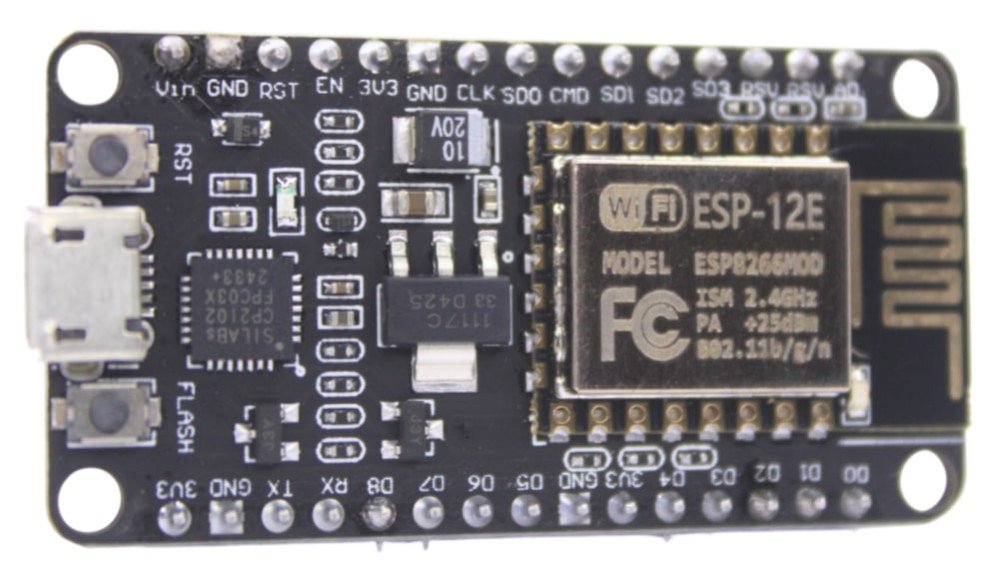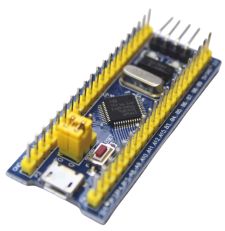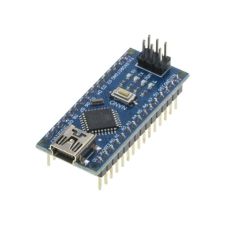Detailed Description:
Elevate your Internet of Things (IoT) projects with the reliable and popular NodeMCU ESP8266 CP2102 WiFi Development Board. This open-source platform, integrating the powerful ESP8266-12E microcontroller, is a fantastic choice for rapid prototyping and deployment of connected devices. A key distinguishing feature of this board is its integrated CP2102 USB-to-serial converter, known for its robust performance and excellent driver support across various operating systems, ensuring smooth and hassle-free programming directly via a micro-USB cable.
The NodeMCU ESP8266 CP2102 operates at a 3.3V logic level (typically powered by 5V via USB) and houses a Tensilica Xtensa LX106 32-bit processor with a configurable clock speed up to 160MHz. With 4MB of flash memory, it provides ample space for complex applications and data storage. This board offers impressive connectivity through its integrated 802.11 b/g/n Wi-Fi capabilities, allowing your projects to easily connect to local networks and the internet.
You'll find a versatile array of GPIO pins (up to 17, with 11 generally usable), supporting essential communication protocols like PWM, I2C, and SPI, enabling seamless interfacing with a wide range of sensors, actuators, and other peripheral modules. A single 10-bit Analog-to-Digital Converter (ADC) pin (A0) is available for reading analog sensor data. The board supports programming with the user-friendly Arduino IDE and also with Lua scripting using the NodeMCU firmware, offering flexibility for different development preferences. Whether you're creating smart home automation systems, environmental monitoring solutions, or connected gadgets, the NodeMCU ESP8266 CP2102 provides a stable, compact, and cost-effective foundation for your wireless embedded projects.
The NodeMCU ESP8266 CP2102 Wi-Fi Development Board is a powerful and affordable open-source IoT platform based on the ESP8266 SoC. It integrates a CP2102 USB-to-serial chip, making it easy to program via USB without needing an external programmer.
With Wi-Fi connectivity, GPIO pins, PWM, I2C, SPI, and ADC support, it’s an ideal choice for creating smart home devices, web-controlled robots, wireless sensors, and more. It’s fully programmable using Arduino IDE, Lua, or MicroPython, making it ideal for beginners and pros alike.
Key Features:
-
Wi-Fi SoC: ESP8266 (Tensilica L106, 32-bit processor)
-
USB Interface: CP2102 USB-to-Serial chip
-
Built-in Wi-Fi (802.11 b/g/n) – Station & Access Point mode
-
10x GPIOs, 1x ADC, PWM, I2C, SPI, UART support
-
Fully Arduino-compatible
-
Supports Lua scripting and MicroPython
-
Onboard LED, Reset & Flash buttons
-
Breadboard-friendly layout
-
Supports OTA (Over-the-Air) programming
-
Compact & Low-power – ideal for IoT devices
Technical Specifications:
| Parameter |
Value |
| Microcontroller |
ESP8266 (ESP-12E module) |
| USB Interface |
CP2102 (USB to UART) |
| Operating Voltage |
3.3V (regulated from 5V USB input) |
| Input Voltage |
5V via Micro USB |
| Clock Speed |
80/160 MHz (configurable) |
| Flash Memory |
4MB |
| Digital I/O Pins |
10 (GPIO0 – GPIO16) |
| Analog Pin |
1 (ADC 10-bit resolution) |
| WiFi Modes |
STA / AP / STA+AP |
| Dimensions |
~58mm × 31mm |
How to Use:
-
Connect to PC via Micro USB cable
-
Install CP2102 USB driver if needed
-
Use Arduino IDE, PlatformIO, or NodeMCU Flasher to upload code
-
Use built-in WiFi for AP/Client/WebServer/HTTP requests
-
Power via USB or regulated 3.3V pin (for embedded use)
Applications:
-
IoT & Smart Home Automation
-
Wi-Fi Remote Monitoring Systems
-
Web-controlled robots and gadgets
-
Wireless data logging and sensors
-
Home security and surveillance systems
-
Voice assistants (Alexa/GHome integrations)
-
DIY Wi-Fi switch or relay control
Package Includes:



































